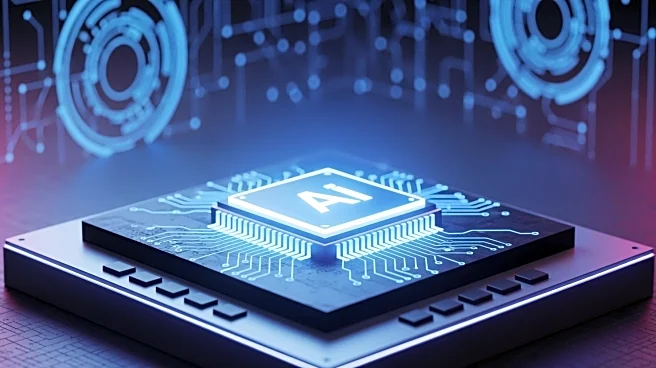What's Happening?
Strauss Zelnick, the chairman and CEO of Take-Two, has expressed skepticism about the current capabilities of artificial intelligence (AI) in the video game industry. Speaking at the Paley International
Council Summit, Zelnick acknowledged AI as a beneficial tool across various industries, including gaming, but cautioned against overestimating its potential. He emphasized that AI, which combines large datasets with computational power and language models, is inherently backward-looking and not capable of true creativity. Zelnick argued that while AI can enhance efficiency, it cannot independently generate creative hits or replace human ingenuity. He also dismissed fears of AI-induced job losses, citing historical shifts in employment, such as the reduction of agricultural jobs due to technological advancements.
Why It's Important?
Zelnick's comments highlight a critical debate within the gaming industry regarding the role of AI in creative processes. As companies increasingly integrate AI tools to streamline development, concerns about the technology's limitations and potential impact on employment are growing. While some industry leaders, like Masahiro Sakurai and Glen Schofield, see AI as a means to address industry challenges, others worry about its implications for job security and creative integrity. The discussion reflects broader societal concerns about AI's role in various sectors, emphasizing the need for a balanced approach that leverages AI's strengths without undermining human creativity and employment.
What's Next?
The gaming industry is likely to continue exploring AI's potential, with companies like Sony and EA already utilizing machine-learning systems to enhance game development. However, as AI adoption increases, stakeholders must address concerns about job displacement and the technology's creative limitations. Industry leaders may need to develop strategies that integrate AI without compromising human roles or creative processes. Additionally, ongoing discussions about AI's ethical and practical implications will shape its future use in gaming and other sectors.
Beyond the Headlines
The debate over AI in gaming also touches on broader ethical and cultural issues. As AI tools become more prevalent, questions about intellectual property, data privacy, and algorithmic biases gain prominence. The industry's approach to these challenges could influence public perception of AI and its role in society. Furthermore, the balance between technological advancement and human creativity will remain a key consideration as industries navigate the evolving landscape of AI integration.









